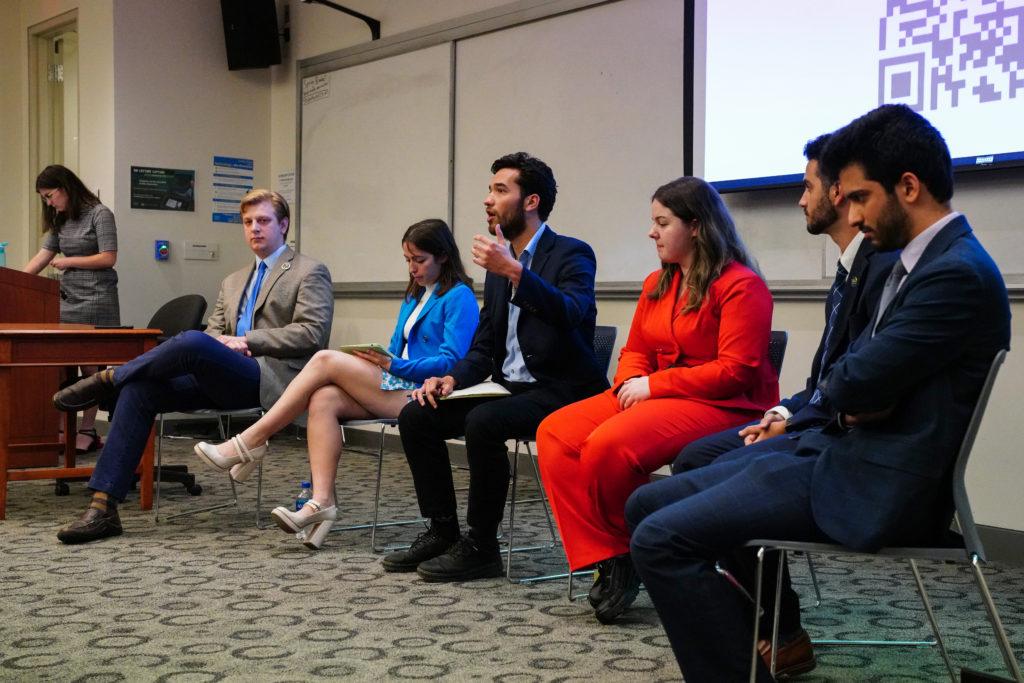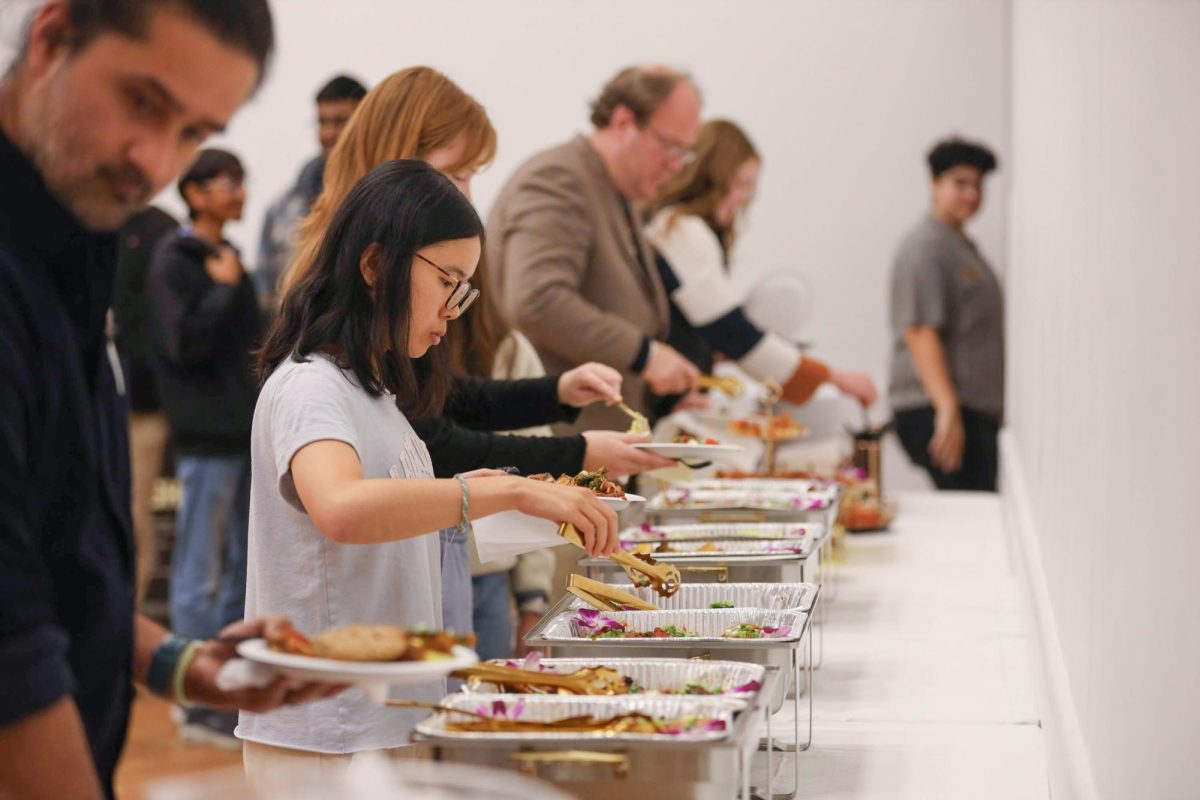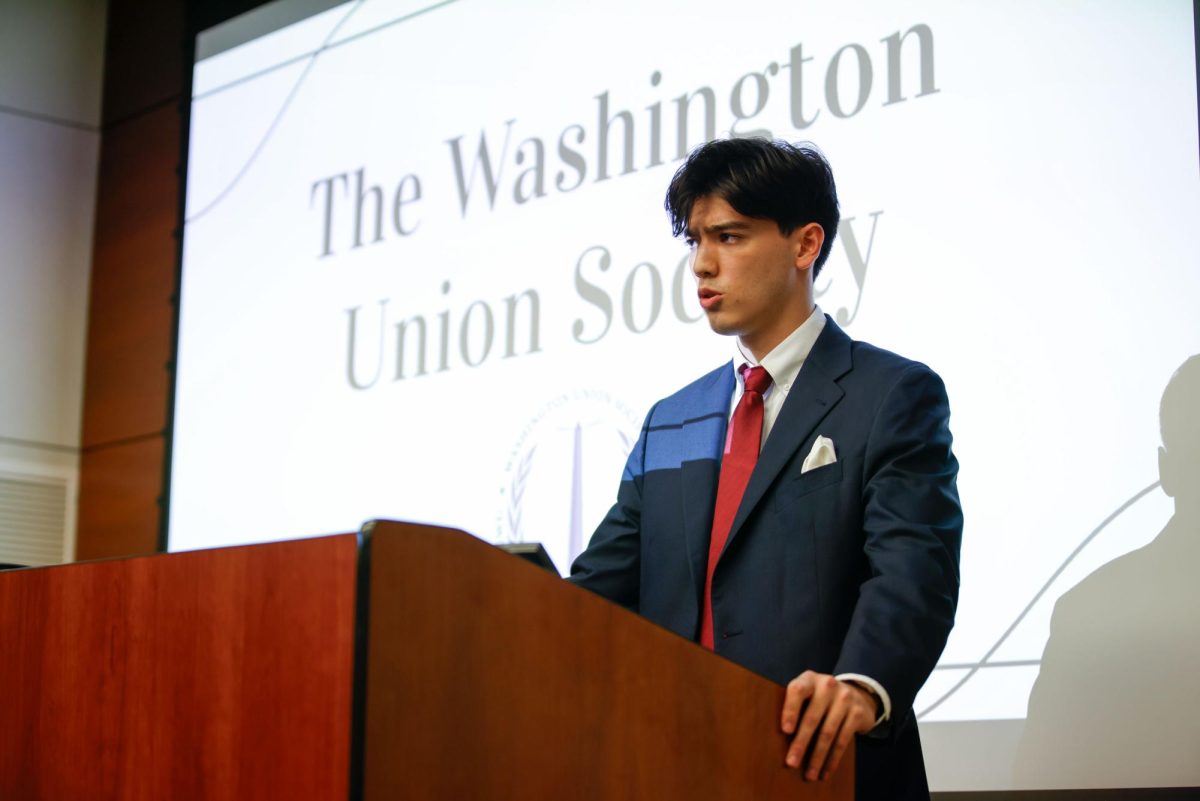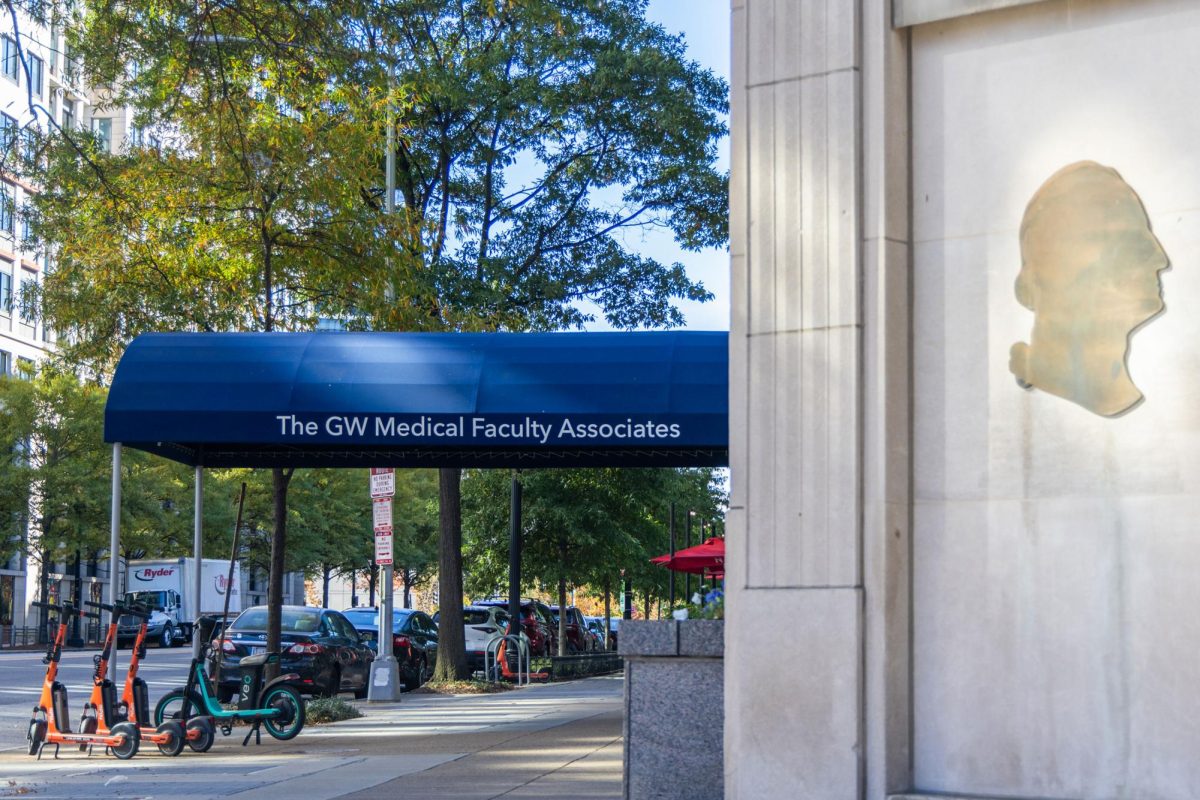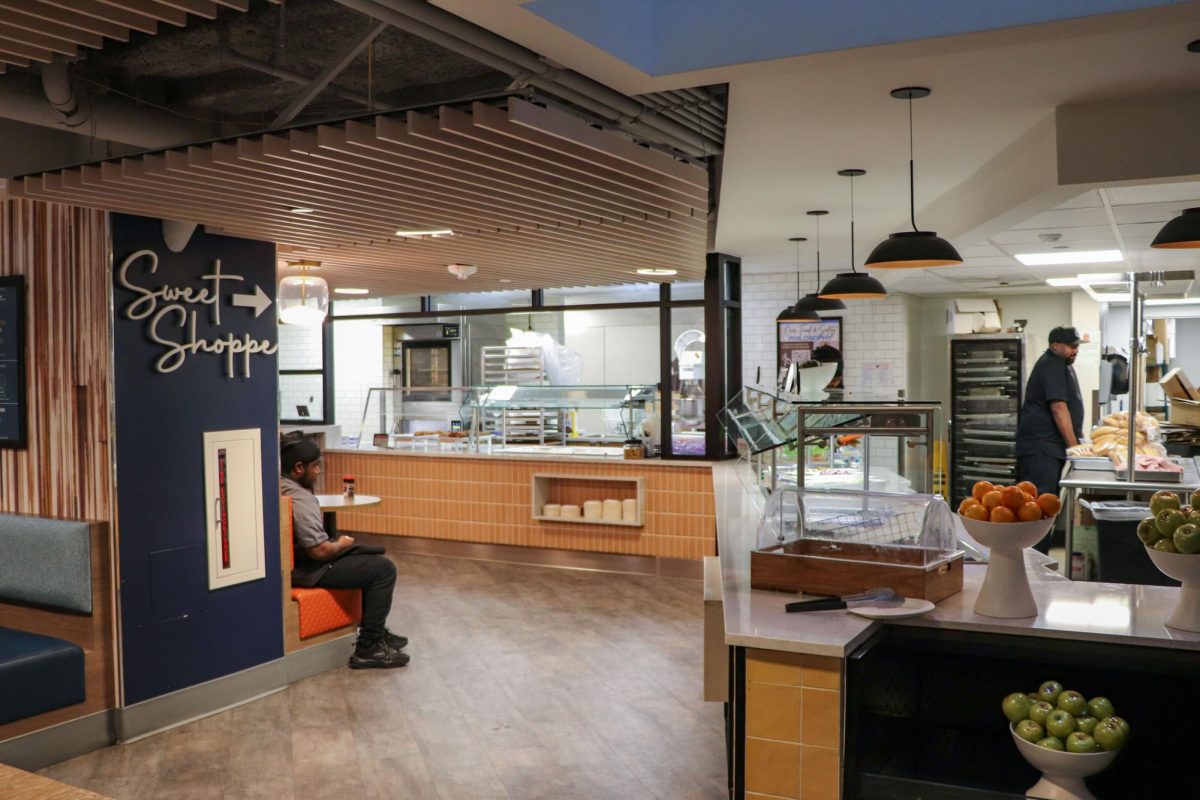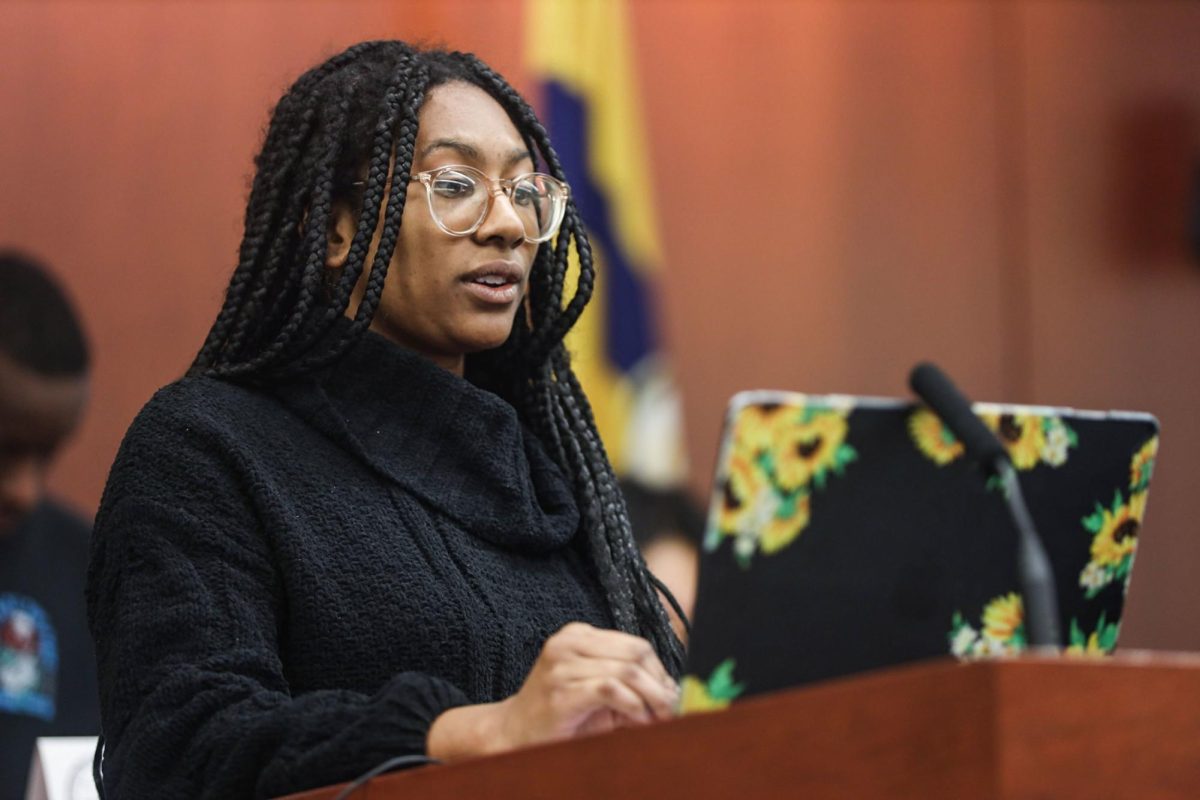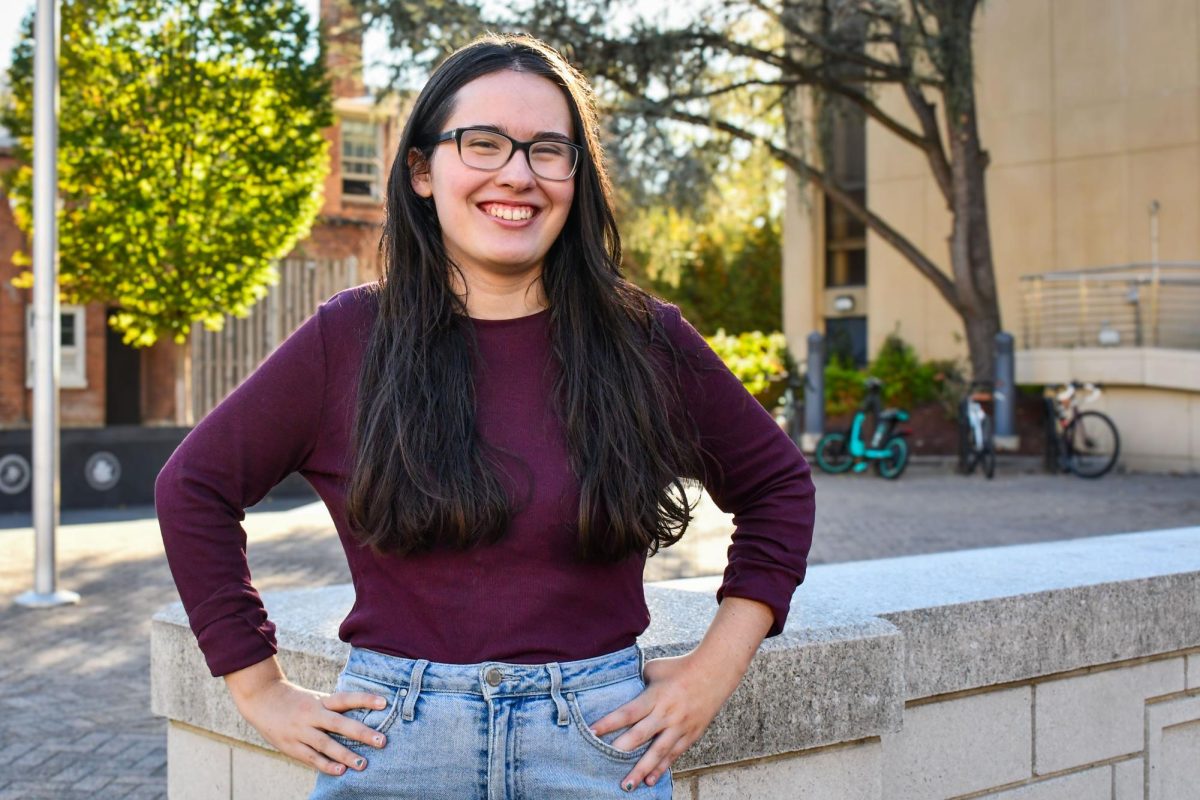Student Association candidates gathered Tuesday in a bid to convince students that they’re the right fit for student leadership at the annual SA debate.
More than 50 people at the Elliott School of International Affairs attended to hear SA presidential and vice presidential candidates debate their proposed policies ranging from improving graduate student engagement with the University to fair funding for student organizations. Six presidential candidates took the floor for over an hour, and two vice presidential candidates, Senate Chairperson Pro Tempore Demetrius Apostolis and SA Treasurer Arya Thakur, sparred in a separate debate.
Erika Filter, The Hatchet’s student government editor, moderated the vice presidential and presidential debates.
Presidential Debate
Six presidential candidates proposed their solutions to issues like a lack of graduate student involvement and a perceived dearth of funding for student organizations across campus.
SA Sen. Rami Hanash Jr., GWSB-U, emphasized increasing outreach and connection with graduate students as one of his main platform points. He said he spoke with multiple senators from a variety of graduate schools on campus and they expressed “similar concerns,” like a lack of awareness for events students can participate in as well as limited knowledge on the resources graduate students have access to. He said if elected, he will invite graduate students to University-wide events.
Hanash also discussed his support for separating the Joint Elections Commission, which organizes SA elections, from the SA, and said elections for JEC members should be “fair,” as opposed to the current system where the SA president appoints members of the JEC. He also said members of the JEC should be elected in a “respectable manner” so they have enough time to work.
“I don’t think that people involved in the Student Association should be allowed to influence elections,” Hanash said. “For example, allowing them to operate outside the SA is something that we should have done a long time ago.”
Former SA transportation secretary Nathan Orner said he plans to redesign the current student organization funding model to a new model where each organization would receive a base funding of at least $200. The SA denied funding to 12 student organizations in the last general allocations process.
Orner said under the current allocations system, organizations cannot sustain themselves with the budgets the SA provides, and he criticized the SA for “not doing anything about it.”
“When I tried to petition onto the ballot, I spoke with 385 people, and not a single one was very fond of the SA or what they did,” Orner said. “The SA spent $48,000 on their own operating budget while giving orgs hardly anything.”
Students pay a $3-per-credit fee that goes into the SA’s funds, and the SA is setting aside more than $500,000 for general allocations to students organizations.
SA Chief of Staff Keanu Rowe said he would use his power as president to appoint project assistants to communicate with organizations regarding finances and external revenue sources.
“Presidents can appoint an endless number of project assistants,” Rowe said. “I will do so and with that, I will delegate them to certain student organizations.”
Residence Hall Association President Arielle Geismar proposed increasing engagement between graduate and undergraduate students through housing, career center opportunities and programming. She also suggested off-campus housing workshops for graduate students to receive advice on finding an apartment.
“We’re making the assumption that grad students know where to go for off-campus housing, they know what to do, they know the kind of questions to ask,” Geismar said.
Former SA Senior Policy Adviser Edy Koenigs expressed her concern with both Disability Support Services and the Title IX office as a “big reason” for why she is running for SA president. She said students have conveyed that DSS is difficult to access, even after receiving support from a doctor, as well as dysfunctional interactions with Title IX which she cannot “stand by” and allow to occur.
“I’ve had so many friends have absolutely atrocious experiences with Title IX,” Koenigs said. “It directly impacts their experience and their ability to connect to GW and I know step by step how to get it done.”
GW Entrepreneurship Club Vice President of External Affairs Mohamed Redzuan Bin Mohamed Raffe said he chose to run for SA president because of his frustration as a student who struggled to get SA funding for the organizations he participates in, like the Entrepreneurship Club.
He said he believes in his policies because people he spoke to while gathering petition signatures expressed interest in his plans to reinstate a pass/fail grading system, provide adequate funding for student organizations and promise stability.
“I have no SA experience, and I feel like that’s one of my proudest talking points,” Raffe said. “I know what it’s like to be a regular student.”
Vice Presidential Debate
Apostolis said his main priority as vice president will be ensuring every student knows that he will be an educational resource for them.
“You can ask any first year in the Student Association or any first year today that’s asked to meet with me,” Apostolis said. “I’ve had multiple coffees. I’ve taken the time and I’ve been there for everyone.”
Apostolis said he plans to increase meetings with administrators and invite students to join him and provide input. He said he hopes to invite student organizations to “regularly scheduled” meetings between the vice president and administrators.
“I want to invite those student orgs to be a part of that conversation,” he said. “So we can be making sure that every student has a voice here.”
Thakur said his campaign is “unique” because he is unafraid to propose “seemingly unrealistic” ideas, like implementing a varsity football team at the University. He said he plans to reserve a pool of funding from the general allocations process every semester for multicultural student organizations who hold some of the “best” events at GW, but are “angry” at the financial committee’s processes because they do not receive fair funding.
He said he hopes students and the SA will “touch grass” and avoid infighting.
“There will be no internal drama with the SA, and we’ll be focusing on the students,” Thakur said.


